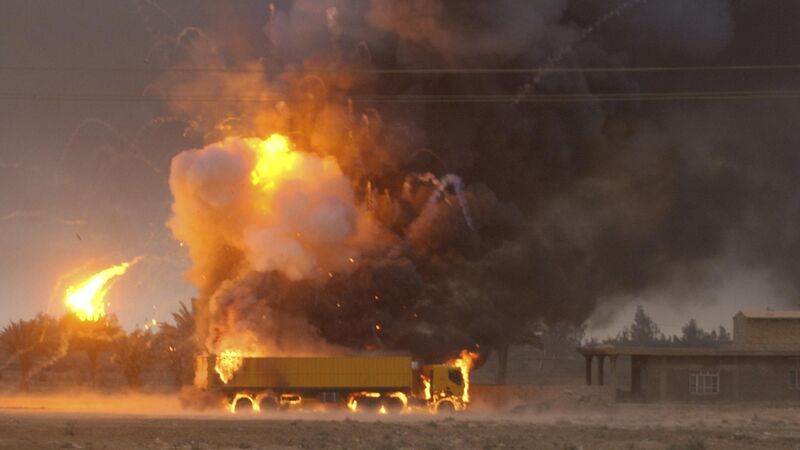Séamas O'Reilly: Remembering a small stand against the Iraq invasion, 20 years on

A semi-trailer truck full of ammunition is exploded by the Marines of the Second Tank Battalion during an advance on the outskirts of Baghdad on Friday, April 4, 2003. (AP Photo, Dallas Morning News/Cheryl Diaz Meyer) /Iraq War
In June 1976, the Sex Pistols played Manchester’s Lesser Free Trade Hall, a gig that’s since gone down in history as one of the most influential in modern history. There were, famously, only 40 people in attendance, making for quite a roomy feel in a venue that could hold 400.
But among that well-spaced crowd stood an absurd cross-section of the future of British alternative music; the Buzzcocks, who had put the gig on; Bernard Sumner, Ian Curtis and Peter Hook — the latter of whom would be so inspired he bought a bass guitar the very next day, so that the three could form Joy Division; Mark E Smith, the cranky figurehead behind art-punk pioneers The Fall; and a 17-year-old, pre-Smiths Morrissey who wrote a letter to NME extolling the virtues of the “bumptious” performance he’d seen.









